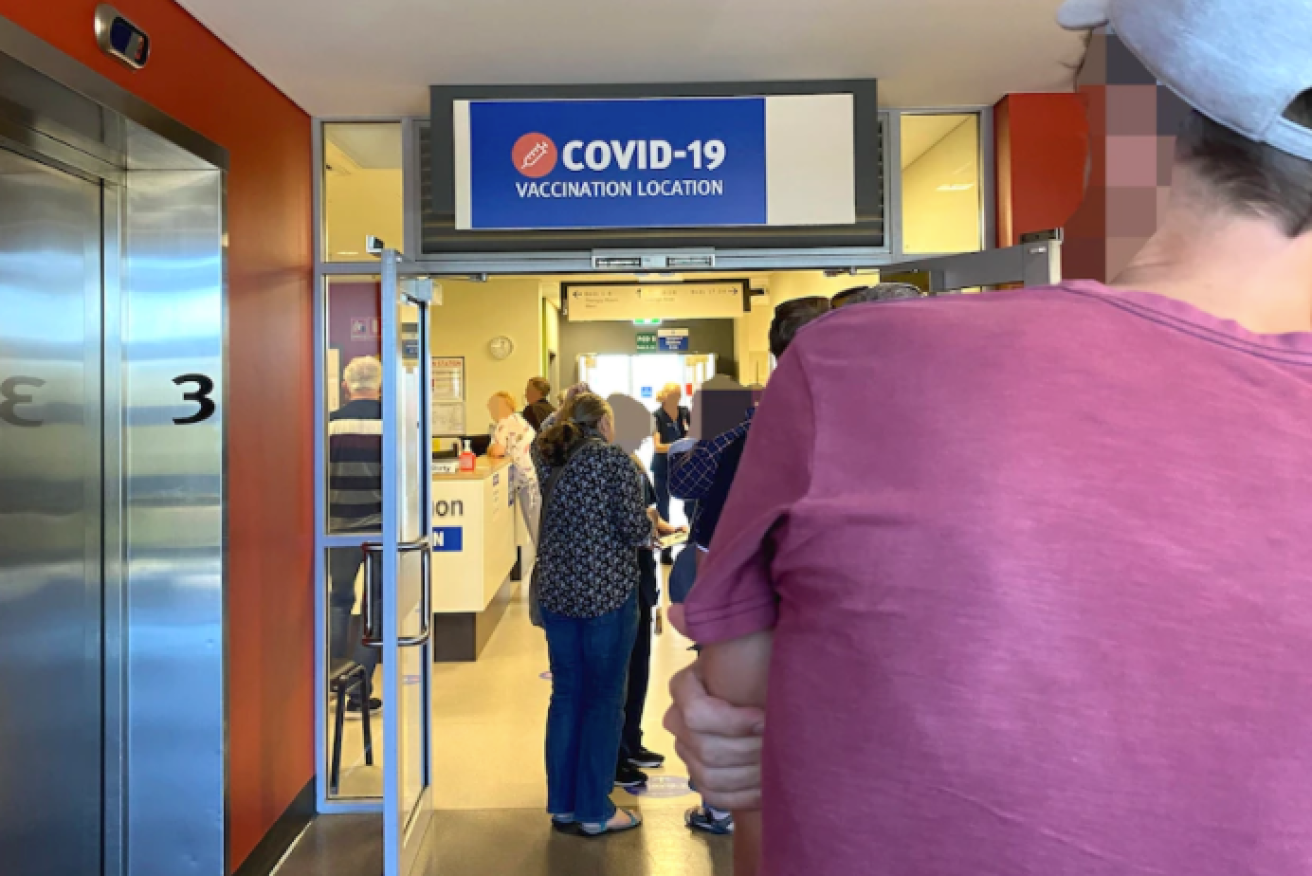Leftover vaccines dumped rather than given to aged-care staff: GP

Australia's vaccination program is expected to step up significantly with the arrival of more Pfizer doses later in July. Photo: ABC
A Queensland GP says he watched vaccination teams dump excess doses of the COVID-19 vaccine at an aged-care centre, rather than offer them to centre staff.
Aged-care residents and staff are yet to be fully vaccinated in Queensland, with state teams covering state-run homes, and federal teams entering private facilities.
However, at the same time as the slow aged-care rollout, an oversupply of the Pfizer vaccine means patients in south-east Queensland are able to walk into a number of COVID clinics and receive their first vaccine dose without an appointment.

Dr Wayne Herdy says parts of the vaccine rollout have been “frustrating”. Photo: ABC
Vaccines down the drain?
Dr Wayne Herdy said he witnessed health workers dispose of surplus AstraZeneca doses, after vaccinating a group of aged-care residents.
The Sunshine Coast GP said he was visiting patients at a private centre in south-east Queensland as the vaccines were being given, about eight weeks ago, and asked if he could receive one as well.
He said as a regular visitor, he could unwittingly put residents’ lives at risk.
“I should be a fairly high priority because I’m going to be the sort of person who will bring the vaccine into this facility, not knowing I’ve got it.”
Dr Herdy said his request was refused.
“At the end of the day, they had about a dozen vaccines leftover that they threw away,” he said.
“They wouldn’t give them to the nursing staff in the nursing home either.
“That sort of story is also really frustrating.”
The ABC asked the federal Health Minister and Department to comment on the incident over the past two days, but is yet to receive a response.
Aged-care staff and residents still vulnerable
Dr Herdy said those in aged-care centres had a “high chance of dying” from the virus, yet they were still waiting to be vaccinated.
“It’s the nursing home patients that were probably the most susceptible, and yet they are still very late in the rollout,” he said.
“One of the nursing homes I go to, has had none of the patients vaccinated yet.
“Staff at the nursing homes have also not been vaccinated.
“You would have thought the staff are the people mostly likely to bring the vaccine into the facility.”
Dr Herdy said it was a matter of complacency, when there was a risk that an outbreak could occur any day.
He said more GPs could be delivering more vaccinations, even if they simply gave a dose to their own patients when they came in for other appointments.
“Every GP is seeing something like 40 patients every day, and we have the capacity to just add in a COVID vaccination on top of an ordinary consultation, without having to overload our system.”
The federal Health Department said new approvals by the Therapeutic Goods Administration meant it could better consider dispatching Pfizer doses into GP clinics.
Desperate for a vaccine
Carer John – who asked not to use his last name – looks after his daughter Sharon, 40, who is non-verbal and lives with cerebral palsy and intellectual impairments.
Under Queensland Health and national guidelines, she has been eligible for a vaccine since March 22, with her disability placing her in the phase 1b part of the rollout.
However, more than two months later, Sharon remains unvaccinated, while her father has received his first dose of AstraZeneca.
“They tell you to register, I’ve followed the guidelines, and then this happens – I’m upset for her, put it that way,” John said.
Desperate for a solution, the 65-year-old began visiting and calling other clinics who might be able to help his daughter, but has so far been knocked back.
John said he worried about taking Sharon to hospital COVID clinics, because it could expose her to a different virus or bug.
Queensland Health said it was preparing to open community vaccine hubs so people did not have to visit a hospital, with 14 to be operating by the end of July.
For John, it means more waiting and more worry, for simply following the rules.
“They say, don’t phone up the hospitals, all you’re going to do is jam up hospital phones for emergencies,” he said.
“You follow the procedure that you’re given, and that procedure is a failure as far as I’m concerned.”








